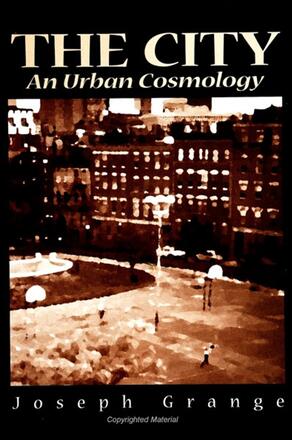
The City
An Urban Cosmology
Alternative formats available from:
An environmental philosophy of the contemporary city, this book develops a theory of good urban growth involving both the physical and cultural dimensions of city life.
Description
Continuing the argument of Grange's highly acclaimed Nature, this book develops a theory of good urban growth and development that involves both the physical and the cultural dimensions of city life. The City offers a "Cityscape" that illuminates the central importance of place in urban experience, and it also constructs a radically new "Urban Semiotics" that opens up novel ways to measure the effects media have on human experience. In applying the thought of Peirce, Mead, Dewey, and Whitehead to the contemporary city, Grange reasserts American philosophy's classical purpose—to make a real difference in the concrete lives of human beings.
Joseph Grange is Professor of Philosophy at the University of Southern Maine. He is the author of Nature: An Environmental Cosmology, also published by SUNY Press.
Reviews
"This brilliant sequel to Nature establishes Grange as one of the leading systematic philosophers of our time. Extending categories introduced generally in that book to interpret the natural world, which of course includes the urban, Grange here makes the categories specific to the city with imaginative and insightful interpretations of urban space, time, place, value, meaning, intelligence, community, justice, and even the place of the philosopher in the city (and the city in the philosopher—remember Plato's Phaedrus). Perhaps the most brilliant structural argument here is Grange's use of Peirce's categories of Firstness, Secondness, and Thirdness to analyze quality, collision, and continuity in the city.
"What sets this book apart from most philosophical ruminations on the city is the wealth of detail that comes from disciplines beyond the margins of philosophy, from poets to city planners, who present the phenomenology of the city in terms different from Grange's theory. The result, and this book's greatest and most extraordinary strength, is a rich interweaving of philosophy's special analytical resources with senses of the city as others understand it. This is imaginative, socially relevant, aesthetically delightful philosophy at its best, and readers of this book will think about the city with new appreciation and understanding." — Robert Cummings Neville, Boston University